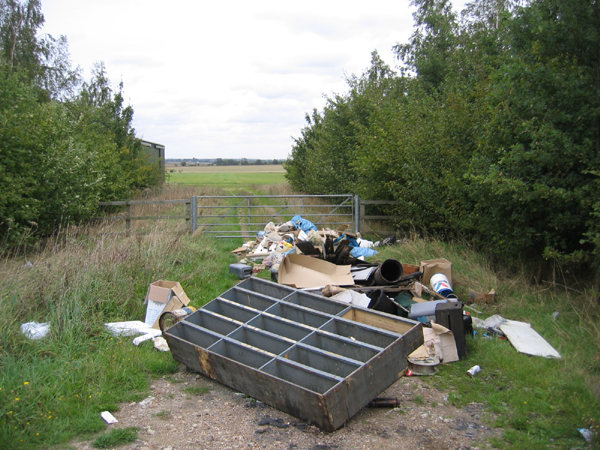
New research commissioned by the campaign ‘right Waste, right Place’ shows that almost a third of agriculture businesses claim to have had illegal waste dumped on their land in the last three years.
Agricultural businesses and rural land owners throughout the UK are bearing the brunt of waste crime with almost a third (32%) suffering incidents of fly-tipping on their land.
The new survey shows the number of those falling victim in the last three years rose to 43% in some areas such as London and the South East, with owners turning to councils for help or being forced to deal with the fallout themselves.
The clean-up cost has been previously estimated to be £100m-£150m per annum by the CLA.
The research, based on telephone interviews with over 500 rural businesses, showed that the fundamental problem is to do with a lack of understanding - with many leaving themselves open to fines, prosecution and imprisonment due to lack of awareness of their obligations under ‘Duty of Care’ law.
Farmers and landowners can also be the victim of illegal waste operators using their land to store waste which is subsequently abandoned, leaving landowners with costly clean up bills.
'Duty of Care'
Depending on the region of the research, up to 100% of survey respondents believed they were compliant with ‘Duty of Care’ law, whereas previous research reveals that only half are likely to be compliant.
The campaign believes that this lack of understanding of ‘Duty of Care’ is directly contributing to waste being illegally dumped in rural areas.
Sam Corp, Head of Regulation at the Environmental Services Association (ESA), commented: “Our survey shows that the effects of people not doing the right thing with their waste are very real for agricultural businesses. Almost a third told us they had experienced fly-tipping on their land, which is not only a costly inconvenience - it can be a major health hazard to people, livestock and livelihoods.
“However it is clear that despite their vulnerability many businesses are running the risk of inadvertently contributing to waste crime by believing they are complying with the legislation when the evidence is there that they are not. We believe this is a particular issue where the waste is handed from one party to another.
“We’d urge businesses to join in alliance with the ‘right Waste, right Place’ campaign to tackle this issue together. We can provide practical support through easy-to-understand reference guides and are keen to work in partnership with businesses to establish best practices and raise awareness of this issue throughout the industry.”
